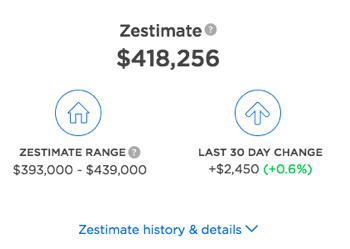Many people know the appraisal business is in a time of tremendous challenge. Most people have heard stories about the problems that buyers are having getting loans and getting underwriter approval. As with most things in life, things are not always what they seem. The appearance is not always the reality. This is true in the appraisal and mortgage business. These are weighty issues, because what happens in the appraisal business effects both buyers and sellers.
The Appraisal Business and Tradition
Traditionally the appraisal business is based on math. An appraiser compiles data on a property, the cost of replacement and comparables, and he does a detailed analysis to arrive at an appraised value. The appraised value is theoretically the current fair market value, a price at which the property should sell for, and upon which a mortgage company can base their loan to value formula to arrive at a maximum loan amount. In the business, we often like to say that an appraisal is as much art as it is science, because we all realize that there is room for different opinions by appraisers as to the precise value of a property.
The Appraisal Business and Credibility
While appraisers play a background role and do not get any glory for their work, the entire mortgage business is built upon the credibility and accuracy of appraisals. In fact, not only is the entire mortgage industry built upon the accuracy of appraisals, so is the secondary mortgage market, the mortgage derivative market, and the billions of dollars invested in various mortgage instruments, like REITS. Retirees have billions of dollars invested in mutual funds that have also invested in mortgage backed instruments. A lot is riding on the accuracy and credibility of appraisals.
Cracks Appearing in The Appraisal Business
There are cracks appearing in the appraisal business, and the mortgage industry is now facing some serious challenges in the way business has always been done. I’ve been watching how the appraisal business works since I first became a Realtor 37 years ago. I noticed then in Fairbanks, Alaska how the appraisals always seemed to come in just slightly above the actual sales price. After a few dozen transactions as a Realtor, I thought that was an interesting coincidence. After several hundred transactions over 37 years with 99.99% of all appraisals coming in exactly equal to the sales price or slightly above it, I no longer believe in coincidences.
We all understand and are led to believe that appraisals are objective third-party determinations of value. The entire appraisal business, the entire mortgage industry, and the real estate financial markets are built upon that firm foundation. Alas, the foundation has a serious crack in it, and there really is no such thing as an objective third-party determination of value. What we do have is perception. The perception that the appraisals determine true fair market value is nothing more than a belief that if an appraiser says so, it is so. Let’s forget about the fact that the appraisers always find out the sales price and then bring the numbers in at or above that amount. (They will deny this to the ends of the earth, but I am certain this is true.)
I know many excellent appraisers. They are honest men and women of integrity. But it is not the people I write about here as much as the “system” in which they work. The system is full of cracks. What does all this about the appraisal business mean for buyers and sellers today? It means the system is built upon perception of value, nothing more. As buyers and sellers, all you can hope for in your next transaction is that when your appraisal comes in, it will satisfy an underwriter, which itself is a nightmare in the current environment. Underwriters. Now that’s a topic for another day.
Last Updated on May 7, 2012 by Chuck Marunde






























Thank you for another magnificent post.
Many lenders are turning to appraisal management firms, which charge lower fees than independent appraisers with more experience but may not have appraisers with as much local market knowledge. Borrowers are often paying more for these new appraisals.
Rather than worry with the complexities of separating the ordering of appraisals from its lending departments, many builders are farming out appraisals to appraisal management companies. This often eliminates independent experienced appraisers with more local knowledge.